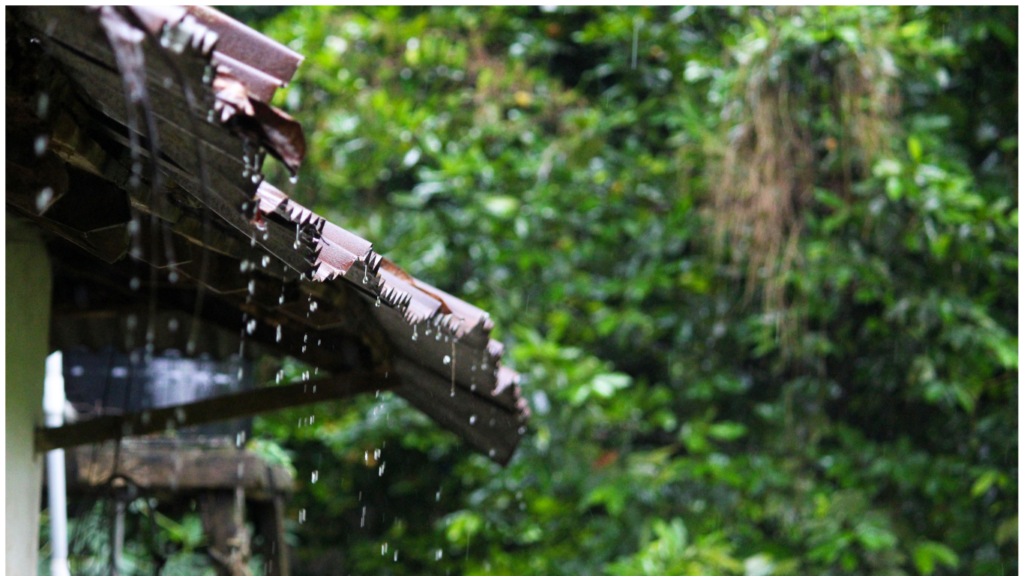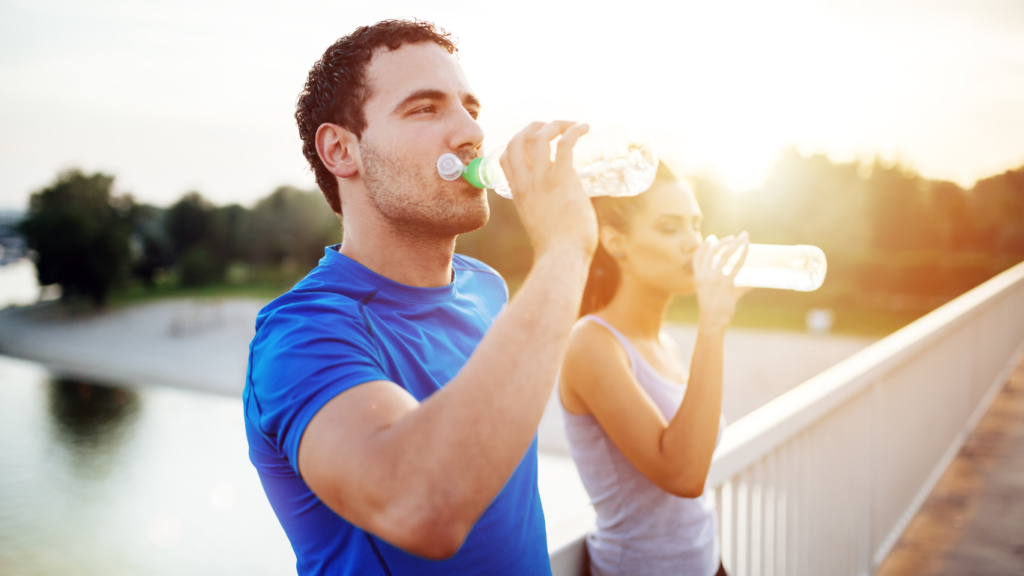
During monsoon season, we usually forget to drink enough water. As it pours outside, we usually feel less thirsty than in hot summers. However maintaining proper hydration levels during the monsoon season is crucial, even though the cooler temperatures and increased humidity might make you feel less thirsty. This is because if the temperature does not drop much, humidity causes sweating, causing our bodies to lose important fluids and electrolytes.
Staying hydrated during the monsoon season offers numerous benefits, essential for maintaining overall health and well-being. Firstly, it helps regulate body temperature, which can be crucial during the humid conditions characteristic of the monsoon. Adequate hydration supports optimal digestion and prevents issues such as constipation. Drinking enough water aids in flushing out toxins from the body, boosting the immune system, and reducing the risk of infections that are more prevalent during the rainy season.
Hydration also keeps the skin healthy and glowing, countering the dampness and potential skin issues caused by the monsoon. Staying hydrated also ensures that the body’s metabolic processes function efficiently, maintaining energy levels and promoting overall vitality.
It is also important to recognize signs of dehydration. Common signs include persistent thirst, dry mouth, and dark yellow urine, indicating that the body requires more fluids. Fatigue and dizziness are also indicators, as dehydration affects blood pressure and circulation.
Headaches and muscle cramps can arise due to electrolyte imbalances caused by insufficient water intake. Dry skin, despite the humid environment, and reduced skin elasticity can also be warning signs. In severe cases, confusion and rapid heartbeat may develop, signaling a critical need for hydration. Being aware of these signs and addressing them promptly by increasing water intake can help prevent the adverse effects of dehydration during the monsoon.

Discussed below are some tips to ensure you stay well-hydrated during monsoon time:
1. Drink Plenty of Water
Make a habit of drinking water regularly throughout the day, even if you do not feel thirsty. There is nothing better than plain water to fulfill your hydration needs. Carry a water bottle with you whenever going out and keep one at your desk all the time while studying or working. In Indian tradition we always give a glass of water to everyone who comes home, be it a family member or guest. This is such a good way to keep hydration a priority. Keep water bottles/jugs full of water on the dining table in the house to remind family members to drink water.
2. Consume Hydrating Foods and Beverages
Eat juicy fruits with high water content such as watermelon, litchi, mangoes, cucumber, sweet lime, etc. Fruit beverages like fresh fruit juice, shikanji, and juice sharbats are also a good idea. Bel sharbat, khus sharbat, rose sharbat, kokum sharbat, aam panna are all refreshing and hydrating drinks. Also include seasonal vegetables like bottle gourd (ghiya/ lauki), sponge gourd (torai), tomatoes, round gourd (tinda), spinach, amaranth leaves (chaulai ka saag), etc in your diet, as they are also high in water content. Soups, broth, and curries can be made using vegetables to consume a balanced diet along with staying hydrated. You may incorporate fruits and vegetables in salads, smoothies, shakes or eat them as snacks.
3. Avoid Dehydrating Beverages
Limit Caffeine and Alcohol consumption. Although tea, coffee, and alcoholic beverages are high in water content, these can have a diuretic effect, leading to increased urination and potential dehydration. Avoid or limit sugary beverages and sodas too, as they can also contribute to dehydration. Similarly, energy drinks, which often contain high levels of caffeine and sugar must be avoided.
4. Herbal Teas and Infused Water
Drink herbal teas, which can be hydrating and soothing. Choose caffeine-free varieties of tea, green tea, rose tea, chamomile tea, lemongrass, ginger, tulsi, and turmeric tea are great choices for hydration. Infused water is also a great idea to improve water intake. Add slices of fruits, vegetables, or herbs (like lemon, cucumber, or mint) to your water to enhance the flavor and nutritive value of your water. You tend to drink flavoured water more and it encourages regular consumption.
5. Monitor Your Hydration
Urine color is a good indicator of hydration. Keep an eye on the color of your urine. Pale yellow usually indicates proper hydration, while dark yellow suggests you need to drink more water. Hydration reminders can also help you consume the right quantity of water. Set reminders on your phone or use hydration apps, trackers, and hydration bottles to remind you to drink water regularly.
6. Electrolyte Balance
Sometimes, plain water is not enough, especially if you are sweating a lot. You lose minerals from your body when you sweat. Drink beverages that replenish electrolytes, such as coconut water or specially formulated electrolyte drinks. Ensure your diet includes foods rich in electrolytes like potassium, sodium, and magnesium. Bananas, pomegranate, watermelon, nuts, and dairy products are good sources.
7. Avoid Overhydration
While it is important to stay hydrated, avoid drinking excessive amounts of water in a short period, as this can lead to overhydration and an imbalance of electrolytes.
8. Monitor Physical Activity
People who are physically more active or go out more need more water. If you exercise regularly or have an outdoor or travel job, ensure you drink water regularly. Drink water before, during, and after your workout. Keep drinking water when you are traveling and keeping active. Even though the temperature might be cooler, you can still sweat during physical activity. Adjust your water intake accordingly. Prefer hydrating with electrolytes as you do not lose just water in sweat. Coconut water, fruit and vegetable juice, infused water, and other readymade drinks with electrolytes are a good idea.
9. Skin hydration
Keeping your skin hydrated during the monsoon season is essential to counteract the dampness and fluctuating humidity levels that can affect skin health. Despite the increased moisture in the air, skin can still lose hydration due to constant exposure to rain, wind, and indoor air conditioning. To maintain skin hydration, start with a gentle, hydrating cleanser that does not strip the skin of its natural oils. Follow up with a lightweight, non-greasy moisturizer that suits your skin type, ensuring it locks in moisture without clogging pores. Incorporating a hydrating serum, especially those with hyaluronic acid, can provide an extra layer of moisture.
By following these tips, you can ensure that you stay properly hydrated during the monsoon season, which is essential for maintaining overall health and well-being.